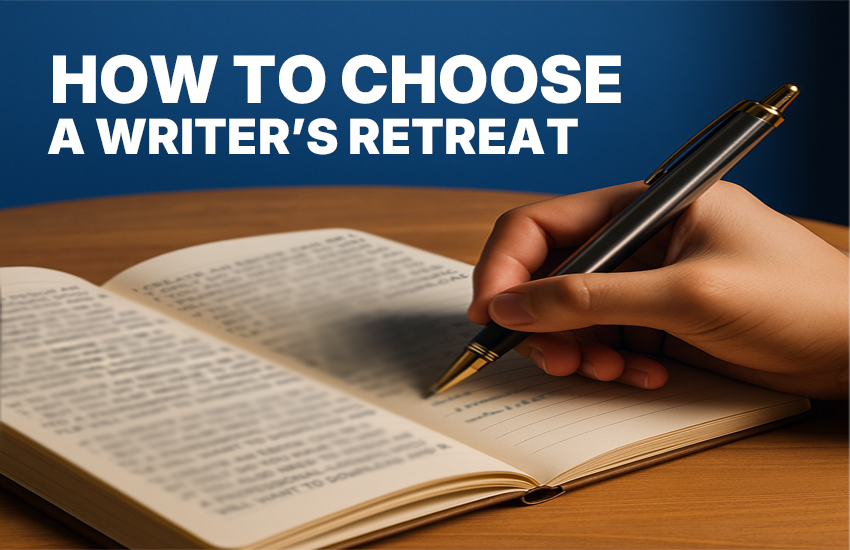You’ve spent hours staring at your screen. Your coffee has gone cold, and the cursor is still blinking at you as if it’s making fun of your existence. If this sounds like you, it might be time to take a break and opt for a writer’s retreat.
There is more to writer’s retreats than just “calm places to work.” They work wonders for the creative mind, where you may rejuvenate, focus on your work, and, with careful choice, achieve your goals.
But how to choose a writer’s retreat when there are hundreds to choose from? Like two friends organizing the best possible creative retreat, let’s go through it together, step by step.
Tips to Choose a Writer’s Retreat
When you think of retreats, the first question that arises is “how to pick a writer’s retreat? What to look for in a retreat?” Here are the tips you can follow to prepare for your retreat:
- Know Your “Why” Before You Go
Many people skip forward at this point and eventually regret it. When thinking of the best writer’s retreats, consider the following:
- Are you trying to find some motivation?
- Do you want expert opinions?
- Do you need some alone time to finish that novel you started but haven’t finished yet?
- Or is a group of other creatives what you’re looking for?
Your “why” is important.
It’s the best option if your primary objective is to finish your book in a peaceful, minimalist, and quiet nature writing retreat with plenty of time for solo writing.
Seek retreats run by editors or published authors who provide one-on-one coaching if you’re looking for mentorship.
Choose a more sociable, workshop-style retreat where group activities are encouraged if you’re in dire need of connection.
Similar to dating, you must be sure of your goals before committing. Otherwise, you will be wasting your time and money on something that will not meet your needs.
- Consider the Structure
There are two main types of writer’s retreats—organized and unorganized.
The writing retreat checklist for writers is:
- Schedules, seminars, lectures, and occasionally even writing assignments are all part of structured retreats. For authors who want structure and direction, these are great.
- You have complete flexibility at unstructured retreats. You, your notebook, and your ideas—no set schedule, no mandatory lessons.
A structured retreat can provide you with the gentle push you need if you have trouble putting things off (like spending two hours looking through Instagram for “writing inspiration”).
Unstructured will be your happy zone if you’re a fiercely independent person who dislikes having your writing schedule imposed on you.
- Pick a Location
Your retreat’s environment will influence every aspect of your experience.
What to look for in a writing retreat? Writing quietly or with some commotion? Are you more creative in the mountains, near the sea, in a large metropolis, or the middle of the forest?
Here is a brief guide:
Mountains: Excellent for introspection, complete detachment. Ideal for authors working on memoirs or solving complex story problems.
Ocean or along the coast retreats: Serene, moody, and ideal for authors who find inspiration in the natural world.
Urban retreats: Bustling activity, proximity to museums, coffee shops, and bookshops. Perfect if you get your energy from the outdoors.
Country or on a farm retreats: slow pace, open views, and reduced distractions. Ideal for authors who want to rejuvenate mentally.
Stay away from retreats close to popular tourist destinations if you’re easily sidetracked because you’ll wind up spending more time exploring than writing.
If you have written an incredible piece and are thinking about its publication, you can always head to us.
- Check the Mentors and Guest Speakers
Having access to mentors, published authors, or editors who share their knowledge is one of the best aspects of a writer’s retreat.
What to look for:
- Do they have any publications in your genre?
- Do you find their teaching style appealing? (Search for their podcasts, workshops, or interviews.)
- Do they only give one keynote address before disappearing, or are they reachable during the retreat?
Spending thousands on “exclusive mentorship” just to discover that your favorite author was present for precisely 45 minutes is not something you want to do.
- Think About Group Size
How to pick a writer’s retreat based on group size? Well, this is the crucial factor that can influence your sense of belonging.
- Smaller groups (6–12 people) offer greater personal interaction, opportunities for bonding, and it is simpler to get feedback from each member individually.
- In medium-sized groups (15–30 people), networking and alone time are well-balanced.
- Large groups (40+) are good for social possibilities, but less individualized mentorship is found.
Small gatherings may feel more secure and caring to introverts. A bigger retreat can be exciting for you if you’re an extrovert.
- Match the Retreat’s Energy to Your Personality
Some retreats focus entirely on introspection; there are no distractions or small talk allowed. Others are a hive of activity, dinner parties, and late-night storytelling sessions fueled by wine.
Neither is “better.” What works for you is what matters.
Retreats for manuscript writing, which require a lot of group activities, should be avoided if you seek isolation. A completely solitary retreat could make you feel lonely instead of inspired if you want a connection.
- Read the Reviews
Reviews are gold—but like any treasure, you have to dig carefully.
Seek out trends. It’s likely true if three separate people complain about the bad food or the unreliable Wi-Fi. But listen to the tone as well. Not because the manuscript writing retreats were poorly managed, but instead because they didn’t fit their style, some people leave negative reviews.
Additionally, look up the retreat’s hashtags on social media. Tweets, tagged posts, and Instagram photographs frequently capture the true mood.
- Don’t Forget Timing
Retreats take place all year long, but time is crucial:
You won’t have enough time to write if you’re going through a hectic time in your life, such as work deadlines, house moves, or family obligations.
Seasonal location changes can drastically modify the atmosphere. Not at all. Consider where you are in the writing process as well.
A more idea-generating retreat is ideal if you’re still coming up with ideas. If you’re in the middle of revising, you may want a more relaxed setting where you won’t be distracted from editing by daily workshops.
- Cost vs. Value Balance
The fact is that writer’s retreats can be costly.
Some can cost you over $5,000 for two weeks, while others only cost a few hundred dollars for a weekend. So, how do you determine whether it’s worthwhile?
Some writing retreat budget tips include:
- What’s covered? (Hospitality, food, workshops, and meals?)
- To what extent will you get one-on-one mentoring?
- Will you leave with “a nice experience” or a finished project?
- Is it in an area that would otherwise be costly to travel to, combining a writing retreat with a vacation?
Additionally, keep in mind that travel expenses like flights, trains, and rental cars can increase quickly. However, some retreats include work-exchange programs or scholarships where you can assist with tasks in return for lower prices.
- Plan for What Happens After
In addition to inspiring you while you’re there, an excellent writer’s retreat trains you for success once you return home.
Ask yourself about writing retreat essentials for productivity:
- Are there accountability groups or follow-up sessions available at the retreat?
- Are there any recordings or resources that you have lifetime access to?
- Will you maintain contact with the other writers you encounter?
Having an existing support system might help you stay creative even after you’ve unpacked your bag.
- Trust Your Gut
Choosing retreats with coaching is more about vibe than practical considerations.
Pay attention if you’re scrolling through retreat alternatives and one of them makes your heart race. Often, the intuitions are right.
Ask previous attendees about their experiences. You can learn a lot more from a brief discussion than from a slick brochure.
Final Words!
How to choose a writer’s retreat? Picking the ideal writer’s retreat is similar to creating a book in which you start with an idea, investigate it, and then decide to go ahead.
Don’t allow FOMO to influence you to get the first stunning cabin you come across on the internet. Spend some time picking an escape that fits your writing style, personality, and ambitions.
Additionally, keep in mind that retreats are about rediscovering the pleasure of writing. They allow you to declare, “It’s just me and my stories for the next few days.” They also give you the time and space to do so.
You’ve poured your heart into your writing. Now let Publishing Republic polish and publish it so readers everywhere can experience your words.



